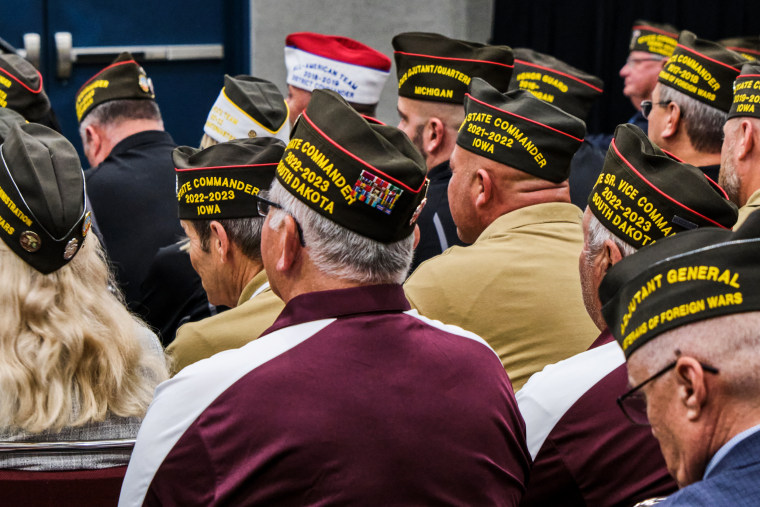A measure that would have provided desperately needed monthly compensation to about 50,000 severely disabled war veterans was left out of the House's defense spending in a blow to retired service members struggling to survive amid rising inflation.
The House Rules Committee declined last week to advance the Maj. Richard Star amendment, which would make medically retired and severely disabled combat veterans with under 20 years of active service eligible for both disability and retirement benefits.
Under current law, only disabled veterans who have served 20 years receive both benefits.
Those with fewer years of service receive disability payments, but not retirement — an injustice that robs retired service members of hundreds, if not thousands, of dollars a month that are not only sorely needed but earned, veteran groups say.
For Michael Braman, who served the Army and the Army National Guard for 19 years and five months, the current law means he is unable to collect an extra $2,200 a month, despite being seven months shy of 20 years of service.
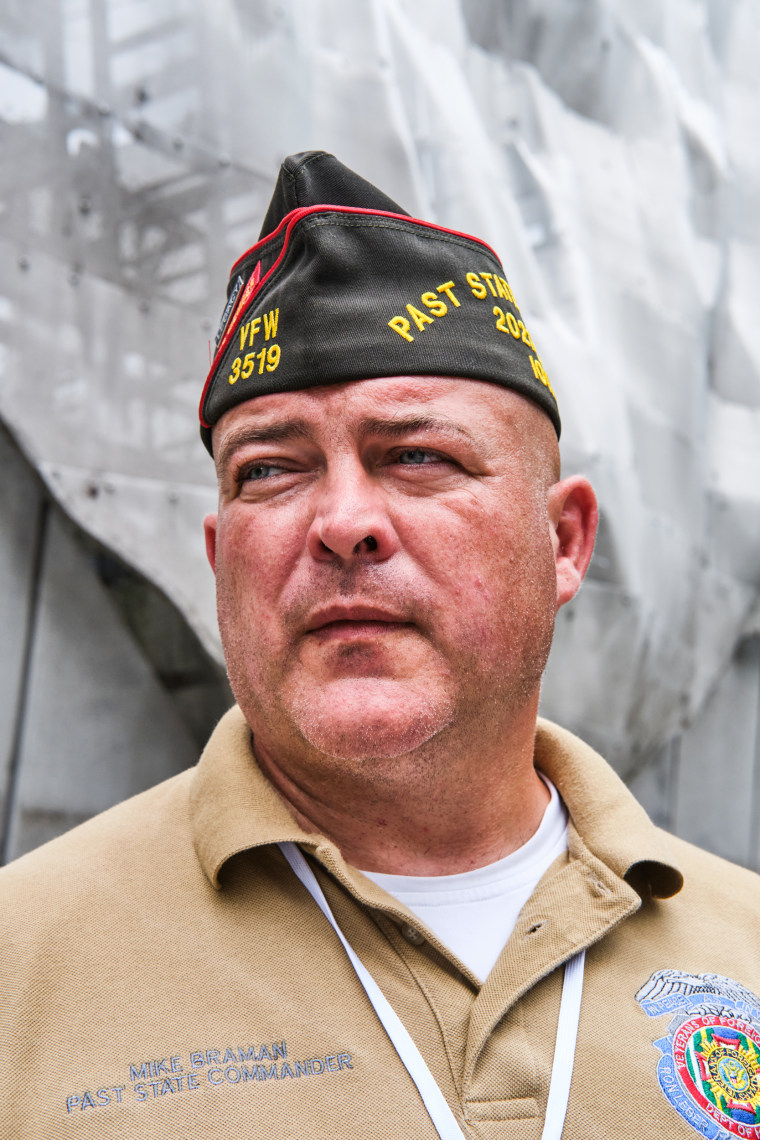
Braman, 45, said the military forced him to medically retire in 2014 due to disability caused mostly by post-traumatic stress disorder. He said he struggled mentally after spending a year in combat in Afghanistan in 2004 and pulling security at mass grave sites in Bosnia.
His mental health spiraled back home in Iowa, years later when he found his first wife dead in a car crash.
"The floodgates opened," he said. "I had nightmares over that. I have nightmares of some of the things I witnessed while overseas. I've struggled ever since."
Braman now supports himself, his wife and four children, including a 2-year-old son who has autism and needs speech therapy, on about $4,900 in monthly disability and combat-related special compensation.
“It’s not that I’m in poverty,” Braman said, adding that surging costs nationwide, including the fuel he needs for the weekly two-hour round trips to Des Moines for his son's appointments, have made life more difficult.
"There are people worse off than me. But I served the country," he said, "and I should be more financially stable than what I am."

The bipartisan measure was named after an Iraq and Afghanistan war veteran who died last year from cancer caused by toxic exposure from combat, according to the nonprofit Military Officers Association of America.
The amendment was among 1,200 proposals that House legislators sought to have included in the National Defense Authorization Act, or NDAA, this year.
Last week, the House Rules Committee allowed 650 of those amendments to move forward for a House vote. The Maj. Richard Star Act was not one of them.
Those that advanced out of the committee include an amendment that would create a secure government system for reporting UFOs and another that requires the Defense Department to only purchase U.S. flags that are made in America.

Some parts of the NDAA that the House passed address inflation and boost pay for active service members. That includes a 4.6% pay raise for military members and a minimum 2.4% “inflation bonus” for military and civilian personnel who earn less than $45,000 a year.
Those who had been on the front lines and were forced to retire on disability feel forgotten by their government.
“I feel personally that my service wasn’t meaningful,” Braman said. “Why did I serve?”
In Tallahassee, Florida, Bill Geiger and his wife are burning through their savings as they raise two teenagers.
Before Geiger medically retired in 2014, he had deployed twice with the U.S. Army and worked detainee operations in Guantanamo Bay in Cuba and Iraq's Camp Bucca.
"I was a good soldier. I was tough," said Geiger, 48, who was deemed unemployable due to PTSD when he left the military. Because of that, he relies on his benefits and cannot secure a second income.
Through the Maj. Richard Star amendment, Geiger would qualify to receive about $3,700 more a month, which he said would substantially help his family.
"It’s a slap in the face. It’s almost unbelievable."
Bill Geiger, a combat-disabled VEt
Geiger said it was a "travesty" that it did not advance in the House and "demoralizing" to retired service members who are struggling financially, emotionally, physically and mentally.
"It’s a slap in the face. It’s almost unbelievable," he said. "I’m a real person, who lives in the real world, with real bills and a real family. And we’re talking about real money."
Retirement pay vs. disability compensation
Retirement pay from the Defense Department and disability compensation from the Department of Veterans Affairs are “fundamentally different” and “earned for different reasons,” the Veterans of Foreign Wars, a nonprofit veterans group, said.
Yet no combat-disabled retiree could receive both at the same time until 2004, when Congress said those with at least 20 years of active service and a disability rating of at least 50% could.
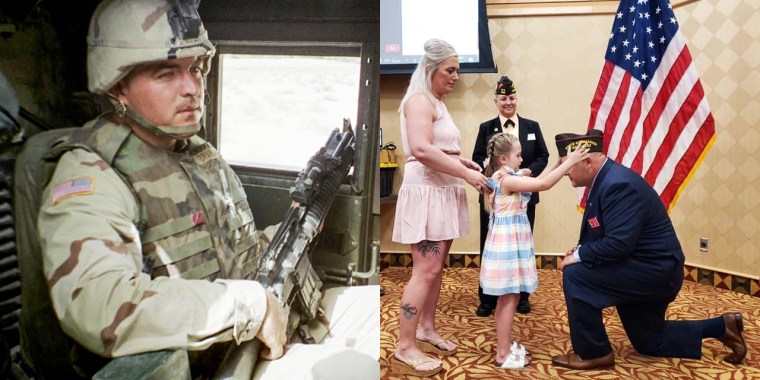
That left out tens of thousands of people, including Purple Heart recipients, whose military careers were cut short due to combat-related injuries, veteran advocates said.
“Combat doesn’t care whether you serve one year, two years, 10 days, 20 years. It’s going to treat you equally,” said Jose Ramos, vice president for government and community relations with the Wounded Warrior Project. “It doesn’t discriminate based on time and service.”
The 42-year-old Navy veteran knows firsthand. Ramos lost his left arm in a rocket explosion in Iraq while serving with a Marine sniper team as a medic in 2004.
The blast also left him with lung contusions, nerve damage to his left leg, bulged lumbar discs and numerous shrapnel wounds.
But because he served under 20 years, Ramos had to figure out how to stretch his $2,800 a month budget as a civilian.
At 24, he stressed over bills for basic necessities, including food and rent. He wondered how he could afford to stay in the Washington, D.C., area, where he was getting prosthetic care treatment.
At the end of 2005, Ramos met his now-wife, and their combined incomes helped ease his burdens.
“If I had not met my wife, I don’t know how the heck I would have survived,” he said. “I was beyond fortunate. But veterans shouldn’t have to depend on luck.”
The Senate could revive the measure
Veteran groups are now relying on the Senate to get the measure included in its version of the NDAA this year. It is more likely to pass as part of a larger package than as a standalone bill, Ramos said.
If it survives in the Senate, there is a chance that the Maj. Richard Star amendment could end up in the final NDAA this year. But there would be hurdles.
Because it is not in the House version, both chambers would have to reconcile any differences before the final bill is sent to the president for signature.
And legislators in the Senate Rules Committee could face the same obstacle that their counterparts in the House did.
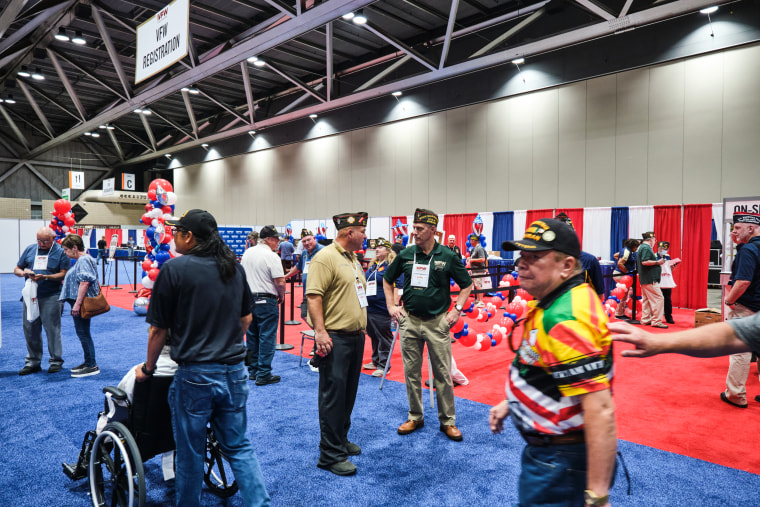
While there are some ways around it, under House rules, any amendment that could increase the federal deficit has to include a way to offset the costs by increasing revenue or reducing spending in other areas, or it cannot be considered.
A spokesperson for Rep. James McGovern, D-Mass., who chairs the House Rules Committee, said the committee could not advance the Maj. Richard Star amendment because it did not include that budget offset.
The spokesperson emphasized that the decision was not because of the specific cost of the amendment, which, according to the Congressional Budget Office, is about $8 billion over 11 years.
The Senate could work around the offset rule if three-fifths of senators vote to waive it. A Senate staffer said the bill has sufficient support to defeat those challenges if they arise.
Sen. Jon Tester, D-Mont., who chairs both the Senate Veterans’ Affairs Committee and Senate Appropriations Subcommittee on Defense, said he would "work hard" to get the amendment included in this year's NDAA.
"Getting this bipartisan bill across the finish line would honor the service and sacrifice of heroes like Richard Star," Tester said in a statement to NBC News, "and it would send an important message that our nation truly has their backs."
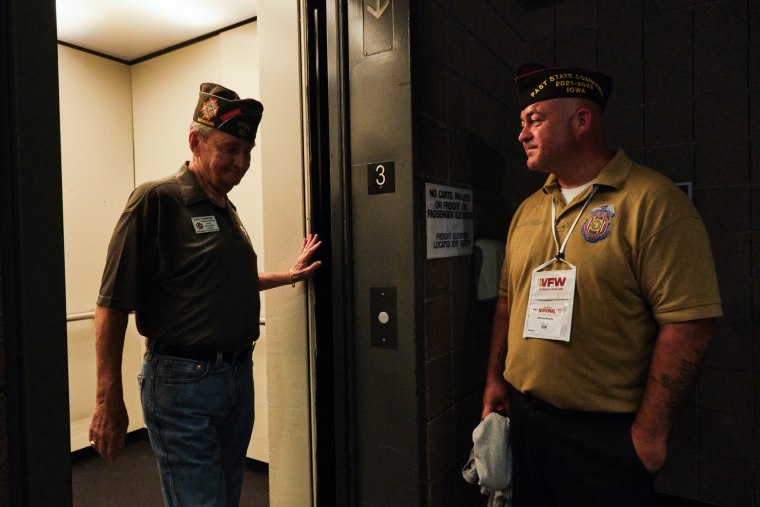
Supporters are clinging to that hope, but some fear it is a long shot. Others worry momentum will diminish if the measure has to be reintroduced in the next legislative session.
For retirees like Michael Raska, 27, who sustained severe head trauma on a deployment with the USS Carl Vinson in 2014, that means another year that combat-disabled service members have to feel the pinch.
"This injustice directly contributes to the thousands of disabled combat veterans that fall into homelessness, mental health crises and suicide," he said.
Raska has sent 700 emails to staff members of every elected legislator in the House and Senate to rally support, but he said only a handful have responded.
"We’re talking about America’s greatest heroes," he said. "It’s unacceptable."
